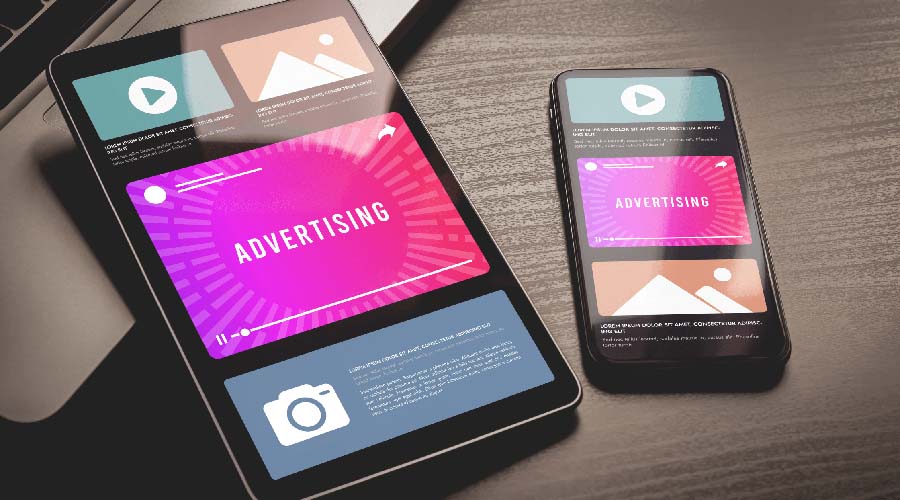
Online advertising is a multi-billion dollar industry that is constantly evolving, transforming, and getting challenging for most of the marketers out there. But, it is also a very powerful tool that can be used to persuade consumers to buy products or services.
Everyone can create online ads, but not everyone can create effective ads that bond with the potential customer, make them feel engaged, and ultimately, lead to acquiring a new customer. But not all advertising is created equal. Some advertising is based on a rational approach, while other advertising is based on an irrational approach.
This blog post will explore these two different types of advertising approaches and how they can be used to persuade and connect with consumers. We will discuss the psychology of rational and irrational advertising, and also provide examples of effective advertising campaigns that use them.
We will also give more details about choosing the right type of advertising for your brand. The type of advertising that is most effective will vary depending on your target audience and your product or service.
By understanding the different types of advertising and how they can be used to persuade consumers, you will be able to create more effective marketing campaigns that set the right expectations in the mind of your audience. Meet your target audience with the right message at the right time with these techniques.
So, what are you waiting for? Read on to learn more about advertising psychology and how you can use them to persuade consumers.
What is Rational Advertising, and Why Does it Matter?
Rational advertising is a type of advertising that appeals to the logical side of the brain. It focuses on the benefits of the product or service being advertised, and it uses facts, statistics, and logic to persuade consumers. This type of advertising assumes that customers know their needs and can link product characteristics to their benefits.
Rational advertising is important because it can be very effective at influencing consumers engaged in the decision-making process through logical and reasoned approaches. For example, if you are selling a new type of car that gets great gas mileage, you could create an ad that highlights the car’s fuel efficiency. Or if you are a real estate agent selling a beautiful, yet expensive house, you can focus on the location, and distance of main objectives such as luxury restaurants, swimming pools, or golf clubs.
However, rational advertising is not always the most effective type of advertising. For some products or services, consumers are more likely to be persuaded by emotional appeals.

Irrational Advertising: When Persuasion Gets Personal
Irrational advertising is a type of advertising that appeals to the subconscious mind. It pivots around the consumer more than the benefits of the product or service. This type of advertising is based on influencing the consumer in order to make them take a specific action. It appeals more to the “wants” than the “needs” in the mind of the consumer and it usually triggers impulse buying.
Through irrational advertising, users can understand how they could benefit from the advertised product or service. Creating a sense of life improvement in the mind of consumers is crucial to showcase by advertisers.
While rational advertising focuses on a product or service’s characteristics, irrational advertising focuses on the emotional side of people’s minds. One of the key benefits of using this type of advertising is that it makes people feel connected to the brand, and nurtures a high sense of belonging.
For example, if you are selling a new type of perfume, you might create an emotional ad that appeals to the senses. This ad might use beautiful imagery and sensual music to create a sense of desire for the perfume.

Which Type of Advertising is Right for Your Brand?
Imagine having an innovative, jaw-dropping product or service that will rock the world. However, it remains a mystery to prospective customers, or perhaps you not only surpass your competitors but also redefine the industry landscape. Nonetheless, distinguishing yourself in a saturated market brimming with rivals poses significant challenges.
So, which type of advertising is right for your brand? The answer depends on a number of factors, including your target audience, your product’s benefits, your budget, and your brand image.
In this section, we will discuss the pros and cons of irrational and rational advertising, and we will provide some guidance on how to choose between the two.
Here are some key factors to consider when choosing between irrational and rational advertising:
Your target audience
Think about your target audience. What are their emotions, their fears, and their desires? If your target audience is more likely to be persuaded by emotions, impulse, or fear, then irrational advertising may be a good option. However, if your target audience is more likely to buy your product or service based on a logical, a priori consideration and evaluation, then rational advertising may be the way to go.
Your product or service’s benefits
Do you have high competition in the market your activity is in? Based on this fact alone, you can safely choose irrational advertising if the market is a high-competitive environment. For example, if you are selling high-end, luxury plate ware, create an ad that is visually appealing, focuses on the experience of serving dinner in an exquisite location, and includes aesthetically pleasing elements.
However, if your product or service is an improved or innovative version with a lower price or other benefits than the competitors are selling. For example, if you are selling electrical stoves that have lower consumption than most others on the market, focusing on this benefit is a sign of applying the rational advertising approach.
Your advertising budget
Irrational advertising can be more expensive to create than rational advertising. This is because irrational advertising often uses high-quality visuals and audio, which can be costly. If you have a limited budget, then rational advertising may be a better option. However, this is not set in stone, mostly because nowadays it is more about becoming viral than having the best advertising campaign. It is just a thing to consider beforehand, but not get discouraged by.
Your brand image
What kind of brand image do you want to create? If you want to create a brand that is seen as professional and credible, then rational advertising may be a better option. However, if you want to create a brand that is seen as being exciting, edgy, or just sophisticated, then irrational advertising may be a better option.
Ultimately, the decision of whether to use irrational or rational advertising should be a strategic one. There is no right or wrong answer, and the best approach will vary depending on your specific brand, your product or service, and your target audience.